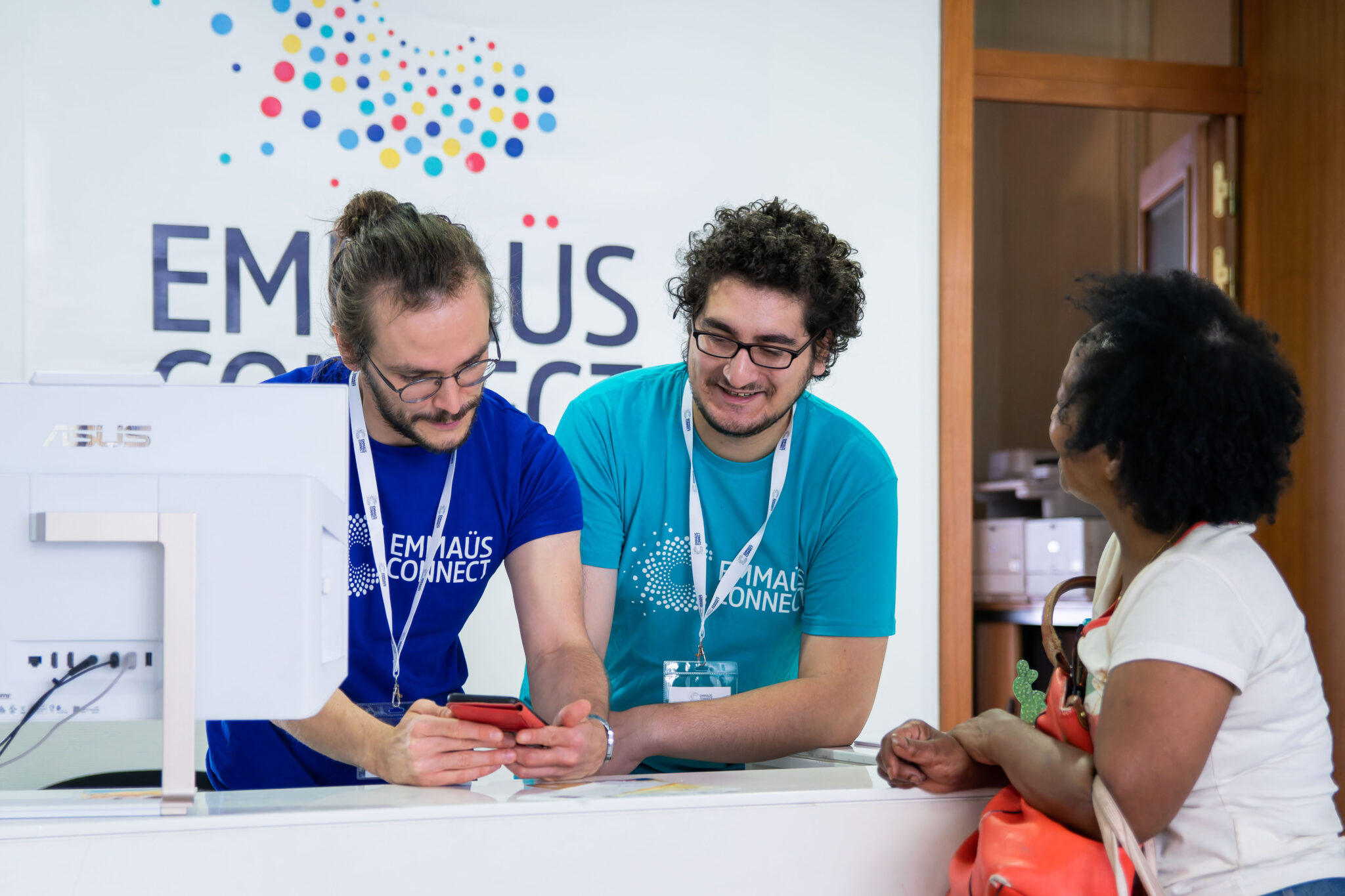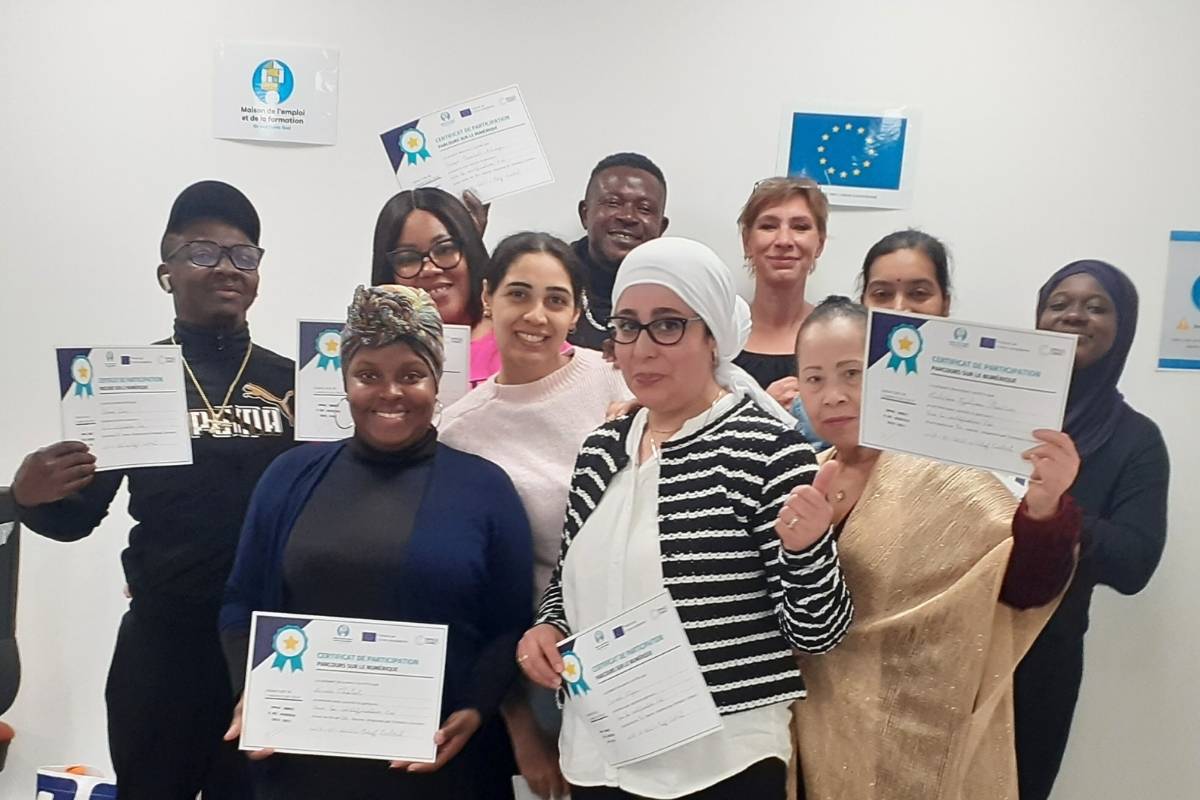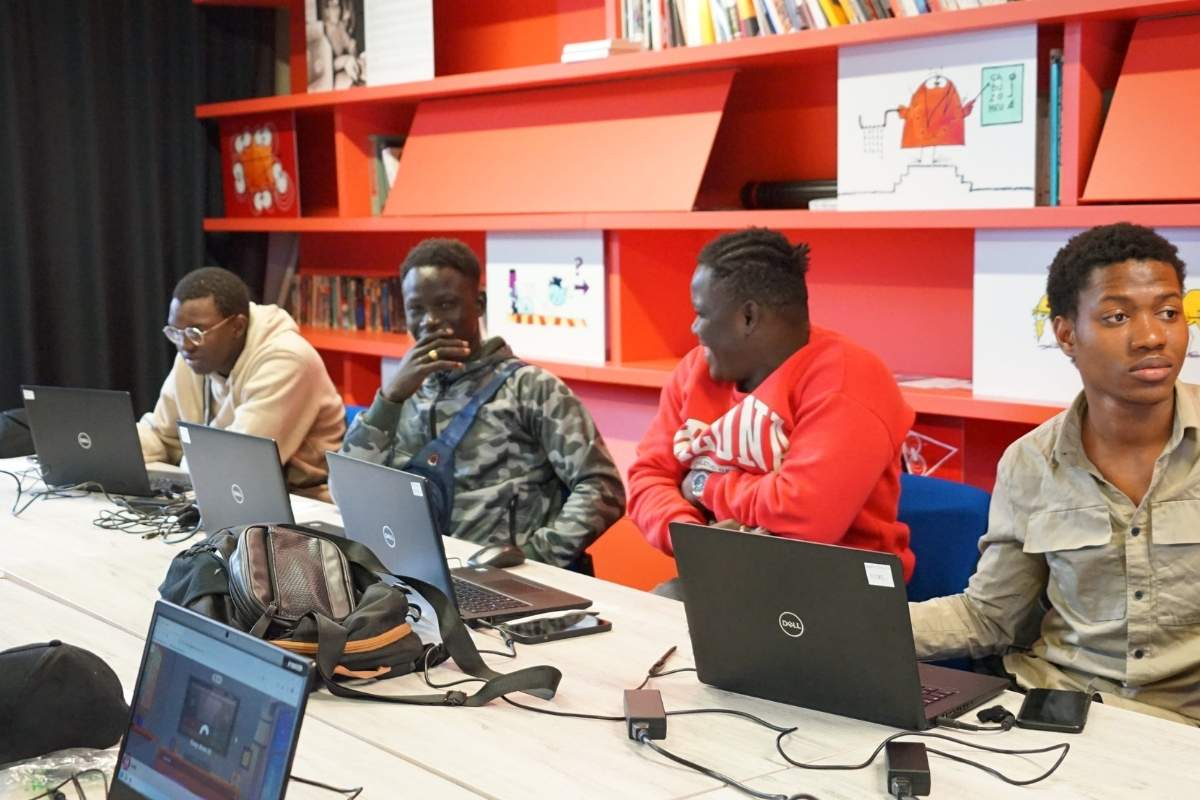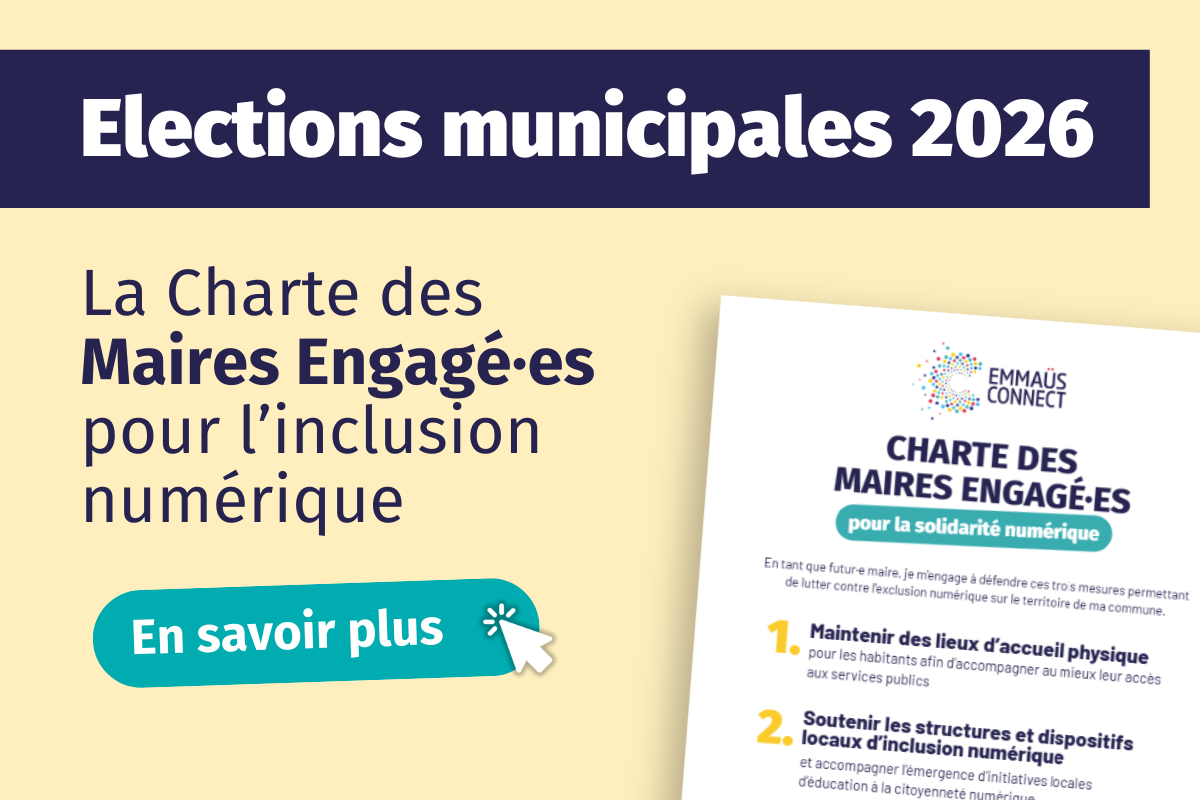In our increasingly digital world, the lack of digital skills and resources prevents many people from accessing essential services. The COVID-19 pandemic has highlighted the digital divide, exacerbating existing inequalities and disadvantages. At Emmaüs Connect, a French non-profit organization founded in 2013, we are committed to bridging this gap with a focus on sustainability and equity. To achieve this goal, we need support from donors, volunteers, companies, and collectives that provide used technological equipment.

Digital divide and exclusion: what are we talking about?
Upon our founding, we identified a growing problem: as France began to digitalize its services, many still viewed phones and emails as non-essential. Tom-Louis Teboul, our Development and Partnerships Manager, emphasizes the importance of being digitally equipped and connected to avoid significant consequences. Ariane Blachier, our Development and International Affairs Manager, adds that 90% of jobs in Europe require basic digital skills.
In France, 16 million people struggle because they have no internet connection, never use the internet, or do not know how to use it sufficiently, according to the ANCT report. In the United States, 16% of adults are not digitally literate. Globally, one-third of the population lacks internet access, according to UN statistics. This divide concerns not only access to technology but also the ability to navigate online services effectively.
Even in countries where the internet is widely available, digital exclusion can affect anyone, including young people. One in five young people can use digital technology to play games or chat on social networks, but not necessarily to find a job. To address this, we provide affordable access to technological equipment and network connections through community partnerships and donations from companies and collectives, as well as personalized workshops to develop necessary social and professional skills.
Our heritage
We are part of the grassroots community organization legacy of the Emmaüs movement, cofounded by priest and humanitarian Abbé Pierre and his secretary Lucie Coutaz in 1954. This movement aims to guarantee shelter, dignity, and solidarity for all, a vision that has expanded internationally with hundreds of associations working in various fields, including access to resources and professional development. At Emmaüs Connect, we extend this vision by using technology to empower marginalized communities.
Equip, connect and support
Step One: Equipment
The cost of digital equipment is a major barrier to digital inclusion. Teboul explains that over 80% of our beneficiaries earn less than 1000 euros per month, while the average cost of a smartphone is 500 euros. By mobilizing donors and refurbishing partners, we provide low-cost equipment to those in need. Used technology is collected, refurbished by our partners, and then distributed to beneficiaries. This sustainable process helps bridge the digital equipment gap while reducing the environmental impact of electronic waste.
Step Two: Connection
Access to data services is crucial for becoming autonomous, but phone plans are often inaccessible for people in precarious situations. This is why we have established a partnership with SFR to offer low-cost mobile recharge cards. These nearly unlimited cards are sold for 3 or 4 euros, a cost 40% lower than prepaid plans available on the market, allowing disadvantaged people to stay in touch with their loved ones, find jobs, and access online resources.
Step Three: Support
Providing access to equipment and network connections is only half the challenge. To fully address the digital divide, we engage with beneficiaries through a holistic, long-term support program. This approach is facilitated by our digital community centers, called « solidarity spaces, » present in 19 territories across France. Beneficiaries find resources and personalized workshops, ranging from one-time sessions to longer-term courses, depending on their needs.
These centers, which are more than just training venues but communities, allow beneficiaries to enhance their digital skills and feel included in society. Our holistic approach, called « 360-degree support, » helps beneficiaries even after they leave the centers. The success of these centers has led to the expansion of the model to 500 partner « Digital Relay Centers », which use the same strategies we have developed.
Towards global expansion
Through our three pillars of equipment, connection, and in-person training, we have supported over 170,000 people in France, with many positive impact stories. For example, Eric came to us without work authorization and found a path to employment and community contribution with our help.
We continue to receive widespread support in France and are now extending our influence internationally. A pilot project has been launched in Benin to assist the most digitally excluded groups, and plans for further expansion are underway to have a global impact. We share our innovative practices with other countries, particularly through transatlantic collaborations. We have partnered with the Friends of Fondation de France to enable American donors to help bridge the global digital divide, allowing those in need to reconnect to society with independence, dignity, and a sense of community.
To read the full article on the Friends of Fondation de France website, click here.
À lire aussi :

Grand Paris Sud : Emmaüs Connect accompagne les publics de la Maison de l’emploi et de la formation vers l’autonomie numérique
Sur le territoire de Grand Paris Sud en 2025, Emmaüs Connect a déployé un programme d'accompagnement numérique visant l’insertion socio-professionnelle en partenariat avec la Maison de l’Emploi et de la Formation (MDEF) et le soutien du Fonds social européen (FSE+)....

Inclusion numérique des mineurs isolés : un projet qui porte ses fruits à Strasbourg
En 2024, Emmaüs Connect a mené à Strasbourg une expérimentation ambitieuse d’accompagnement au numérique à destination de jeunes mineurs non accompagnés (MNA). Grâce au soutien du Fonds social européen (FSE+) à hauteur de 25 000 €, ce projet a permis d’accompagner et...

Elections municipales 2026 : Emmaüs Connect lance la Charte des Maires Engagé·es pour l’inclusion numérique
Face à la numérisation des services essentiels et ses conséquences, les communes, de par leur ancrage local, sont en première ligne pour répondre aux besoins des citoyens. Dans le cadre des élections municipales des 15 et 22 mars 2026, Emmaüs Connect formule trois...
